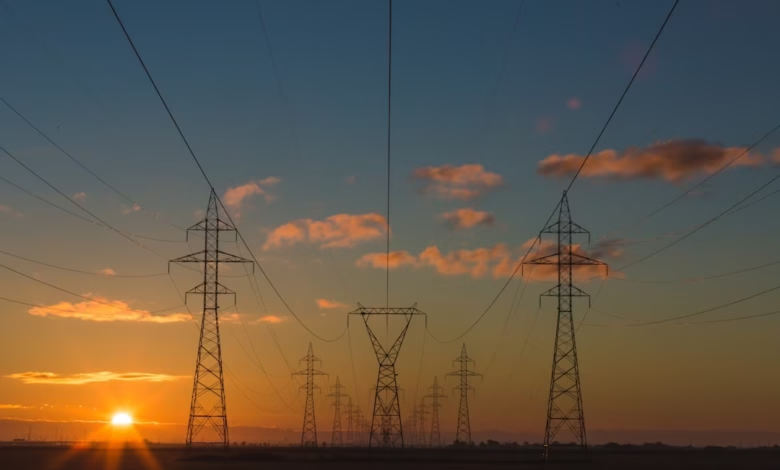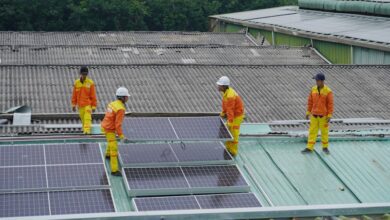Navigating the Future of Energy: Government Policies and Innovations Shaping Renewable Energy and Efficiency

In the face of climate change and the urgent need for sustainable development, energy policy and regulation have become pivotal in shaping the future of our global energy landscape. Governments worldwide are increasingly implementing rules and initiatives aimed at advancing energy efficiency and promoting renewable energy sources, such as solar power, wind energy, and hydropower. These efforts are crucial in navigating the complex energy transition, which seeks to balance the reliance on fossil fuels and nuclear energy with the demand for green energy solutions. This article delves into key government initiatives that drive the adoption of energy innovations, including smart grids, energy storage technologies, and carbon capture systems, which collectively enhance energy security and contribute to a more sustainable future. As we explore the role of energy markets and the implications of energy investment, it becomes clear that understanding these policies is essential for fostering a resilient and adaptable energy system. Join us as we examine the current trends and initiatives shaping energy management, and discover how they can lead us toward a cleaner, more efficient energy future.
- 1. Navigating Energy Policy: Key Government Initiatives for Renewable Energy and Energy Efficiency
- 2. The Role of Fossil Fuels and Nuclear Energy in the Energy Transition: Balancing Energy Security and Sustainability
- 3. Innovations in Energy Management: Exploring Smart Grids, Energy Storage, and the Future of Energy Markets
1. Navigating Energy Policy: Key Government Initiatives for Renewable Energy and Energy Efficiency
Navigating energy policy requires an understanding of various government initiatives aimed at promoting renewable energy and enhancing energy efficiency. Recently, many countries have recognized the necessity of transitioning from fossil fuels to greener alternatives to combat climate change and ensure energy security.
One of the significant initiatives is the promotion of renewable energy sources such as solar power, wind energy, hydropower, and bioenergy. Governments are implementing incentives for energy investments in these sectors to stimulate growth and innovation. For instance, tax credits and subsidies for solar energy installations encourage homeowners and businesses to adopt renewable technologies. Similarly, investments in wind energy projects have surged, supported by policies that promote offshore energy development.
Energy efficiency is another critical focus area within energy policy. Governments are establishing regulations that mandate energy efficiency standards for appliances, buildings, and industrial processes. These initiatives aim to reduce energy consumption and lower greenhouse gas emissions. Moreover, smart grids are being deployed to optimize energy distribution and consumption, facilitating a more efficient energy market.
As part of the energy transition, many governments are also exploring energy storage solutions and hydrogen energy. Energy storage technologies are essential for managing the variability of renewable sources, ensuring a steady supply of power. Hydrogen, particularly green hydrogen produced from renewable sources, is gaining attention as a potential clean fuel for various applications, including transportation and industrial processes.
Carbon capture technologies are being integrated into energy policy frameworks to mitigate the environmental impact of fossil fuels while transitioning to cleaner energy. These innovations help capture CO2 emissions from power plants and industrial operations, making them pivotal in achieving climate goals.
Additionally, the landscape of energy markets is evolving with increased focus on distributed energy systems and electric vehicles (EVs). Policies that promote the adoption of EVs not only reduce reliance on fossil fuels but also encourage the development of necessary infrastructure, such as charging stations and energy transportation networks.
In conclusion, navigating energy policy today involves understanding the interplay between various initiatives that support renewable energy, enhance energy efficiency, and address global energy trends. By aligning these efforts with economic considerations and climate objectives, governments can pave the way for a sustainable energy future that prioritizes both energy security and environmental stewardship.
2. The Role of Fossil Fuels and Nuclear Energy in the Energy Transition: Balancing Energy Security and Sustainability
The energy transition is a critical phase in addressing climate change while ensuring energy security. As governments around the world push for more sustainable energy policies, the role of fossil fuels and nuclear energy becomes increasingly complex. Balancing the need for immediate energy security with long-term sustainability goals presents unique challenges and opportunities.
Fossil fuels, which have long been the backbone of global energy markets, continue to play a significant role in the short term. Despite the growing emphasis on green energy sources like solar power and wind energy, fossil fuels still account for a substantial portion of energy consumption. This reliance raises concerns regarding energy security, particularly in regions where energy imports are heavily relied upon. In this context, energy policy must focus on a gradual reduction of fossil fuel usage while ensuring that energy supply remains stable. This can be achieved through investments in energy efficiency and innovations in carbon capture technologies, which aim to mitigate the environmental impact of fossil fuel use.
Nuclear energy also remains a crucial component of the energy transition. As a low-carbon energy source, nuclear power provides a reliable means of generating thermal energy that can support energy security while transitioning toward more renewable options. The integration of nuclear energy into the energy mix can help stabilize energy markets, especially during periods of fluctuating renewable energy production. Moreover, advancements in nuclear technology, such as small modular reactors, offer the potential for safer and more flexible energy generation.
As countries invest in energy storage solutions and smart grids, the integration of renewable energy sources becomes more feasible. These innovations not only enhance energy efficiency but also facilitate the use of distributed energy resources, which can help balance supply and demand. By harnessing the potential of offshore energy projects and hydropower, governments can diversify their energy portfolios, reducing dependency on fossil fuels while promoting sustainability.
The energy transition is also about economic considerations. Energy R&D plays a pivotal role in developing new technologies that can optimize energy transportation and improve energy markets' efficiency. Investments in hydrogen energy and bioenergy are essential for creating a more resilient energy landscape that meets both current and future demands.
Ultimately, a successful energy transition requires a balanced approach that considers the role of fossil fuels and nuclear energy in achieving energy security. Policymakers must navigate the complexities of energy imports and exports while fostering innovations that drive the shift toward a cleaner, more sustainable energy future. By prioritizing energy investment in both renewable and transitional energy sources, countries can effectively address climate change while ensuring stable energy supplies for their populations.
In summary, the energy transition is not just about replacing fossil fuels with renewables but also about creating a cohesive strategy that includes nuclear energy and emphasizes energy efficiency, security, and economic viability. This multifaceted approach is vital for achieving a sustainable energy future that aligns with global energy trends and addresses the pressing challenge of climate change.
3. Innovations in Energy Management: Exploring Smart Grids, Energy Storage, and the Future of Energy Markets
Innovations in energy management are transforming the landscape of energy policy and regulation, paving the way for a more sustainable and efficient future. As the world shifts towards renewable energy sources, such as solar power, wind energy, and hydropower, the integration of advanced technologies becomes crucial in managing these diverse energy inputs effectively.
One of the most significant advancements in energy management is the development of smart grids. These intelligent systems enhance energy efficiency by optimizing electricity distribution and facilitating real-time communication between energy suppliers and consumers. Smart grids enable the integration of distributed energy resources, including solar panels and wind turbines, allowing for greater reliance on green energy while decreasing dependence on fossil fuels. Additionally, they enhance energy security by improving the resilience of energy infrastructure against disruptions.
Energy storage technologies are another critical innovation in this sector. As renewable energy sources are often intermittent, effective energy storage solutions, such as batteries and pumped hydro storage, play a vital role in stabilizing energy supply. By storing excess energy generated during peak production times, these systems can deliver electricity during periods of high demand, thereby enhancing overall energy efficiency and supporting the energy transition. Furthermore, energy storage contributes to carbon capture efforts by enabling the use of cleaner energy sources while reducing reliance on fossil fuels.
The future of energy markets is also being shaped by these innovations. As countries implement energy policies aimed at reducing greenhouse gas emissions and promoting renewable energy investments, the dynamics of energy economics are evolving. Emerging trends, such as hydrogen energy and bioenergy, are gaining traction, presenting new opportunities for energy exports and imports. The shift toward electric vehicles (EVs) further emphasizes the need for efficient energy transportation and management systems, as the demand for charging infrastructure grows.
As we navigate the complexities of climate change, these innovations in energy management will be essential in meeting global energy trends and achieving a sustainable future. By fostering energy R&D and promoting policies that support the development of smart grids and energy storage solutions, governments can effectively guide the transition towards a cleaner, more resilient energy landscape, while ensuring energy security and economic stability.
References:
– International Energy Agency. (2022). Energy Efficiency 2022. Retrieved from https://www.iea.org/reports/energy-efficiency-2022
– U.S. Department of Energy. (2023). Energy Storage. Retrieved from https://www.energy.gov/oe/activities/technology-development/grid-modernization-and-smart-grid
– World Economic Forum. (2023). The Future of Energy: The Role of Smart Grids. Retrieved from https://www.weforum.org/agenda/2023/01/future-energy-smart-grids/
– National Renewable Energy Laboratory. (2021). Renewable Energy and Energy Storage. Retrieved from https://www.nrel.gov/analysis/renewable-energy-storage.html
In conclusion, the landscape of energy policy and regulation is evolving rapidly as governments around the world strive to balance energy security with sustainability. Key initiatives promoting renewable energy and energy efficiency play a pivotal role in the ongoing energy transition, underscoring the importance of diversifying our energy sources. While fossil fuels and nuclear energy continue to be integral to maintaining energy security, innovations in energy management, such as smart grids and energy storage, are paving the way for a more resilient and efficient energy market.
As we navigate global energy trends, it’s clear that investments in green energy technologies, including solar power, wind energy, and hydrogen energy, alongside advancements in carbon capture and bioenergy, will be crucial in addressing climate change and fostering a sustainable future. With the rise of distributed energy systems and the integration of electric vehicles, the shift towards a more decentralized energy landscape is gaining momentum.
Ultimately, ensuring effective energy policy will require ongoing collaboration between governments, industries, and consumers. By prioritizing energy R&D and embracing innovative approaches to energy transportation and management, we can unlock the full potential of renewable energy and create a robust energy economy that benefits all. As we look ahead, the alignment of energy policies with global sustainability goals will not only secure our energy future but also contribute significantly to the health of our planet.
References:
(Include your sources here)





